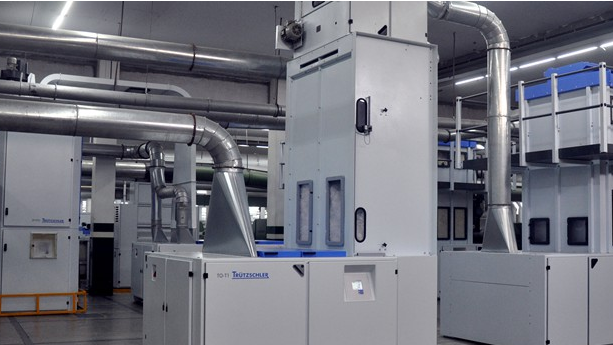| The new Chairman of the All-Pakistan Textile Mills Association (APTMA) Tariq Saud has that six major sub-sectors of textile industry have closed down owing to energy crisis, high cost of doing business and inconsistency in government policies, Pakistani newspapers have reported.
He said around 30 per cent or $3,467 million worth of the textile industry’s production capacity is not operating which was negatively impacting export growth. “Due to underperformance of the textile industry, he said, Pakistan’s share in the global market also decreased from 2.2 per cent to 1.8 per cent during 2006-13, whereas market share of regional competitors increased by 75 per cent from 1.9 per cent to 3.3 per cent,” he said. He warned that if situation remains the same, Pakistan could be out of the list of exporting countries of textile items. Saud said the domestic market is being flooded with smuggled, subsidised and dumped clothing imports. The customs duty on import of cotton yarn in Pakistan is 5 per cent whereas India has imposed 28 per cent duty which makes export of cotton yarn to India unviable. As a result of this, he said a number of textile mills have closed down their operations on failing to compete with Indian textile industry. APTMA’s Punjab unit chairman Aamir Fayyaz had leveled a similar charge a few ago. Saud further said that the Indian government has launched the Technology Upgradation Fund Scheme, along with other incentives for its textile industry to the tune of $66 billion. In contrast, not a single notification in connection with Textile Policy 2014-19 has, so far, been issued, he said. The APTMA had clarified to government policymakers that Pakistan’s textile industry could never compete with the Indian industry because of the high cost of doing business which led to the closure of number of mills and the laying off of thousands of workers. The APTMA has engaged the government since August but no tangible relief has so far been announced. “We’ve met the federal finance minister in August followed by a detailed meeting with the Prime Minister in September. The announcement of a textile package has already been too late and fears are mounting that it could also be too little,” the Chairman added. Saud urged the government to withdraw electricity surcharges for textile industry on independent feeders, provide regionally competitive electricity tariff at Rs 9 per kWh, withdraw GIDC and recent increase in gas tariff, impose 25 per cent duty on import of textile and clothing, zero rate export oriented textile industry by providing drawbacks at 5 per cent against export of yarns, fabrics, made-ups and garments, long-term financing scheme of SBP to ginning and spinning sub-sectors and release pending refunds. (SH) |

Leave a Reply
You must be logged in to post a comment.